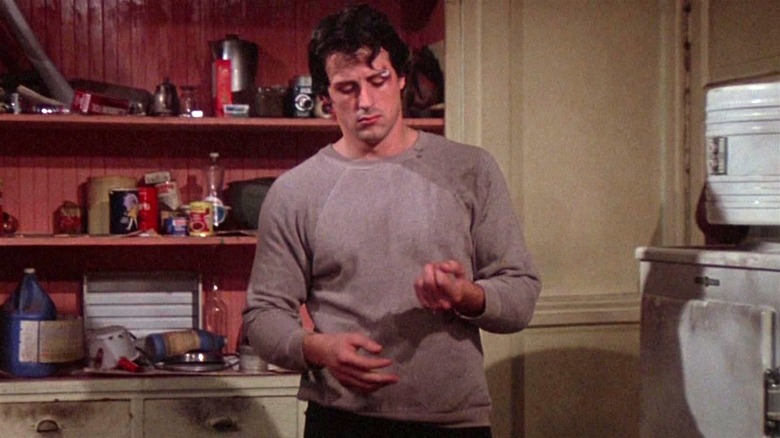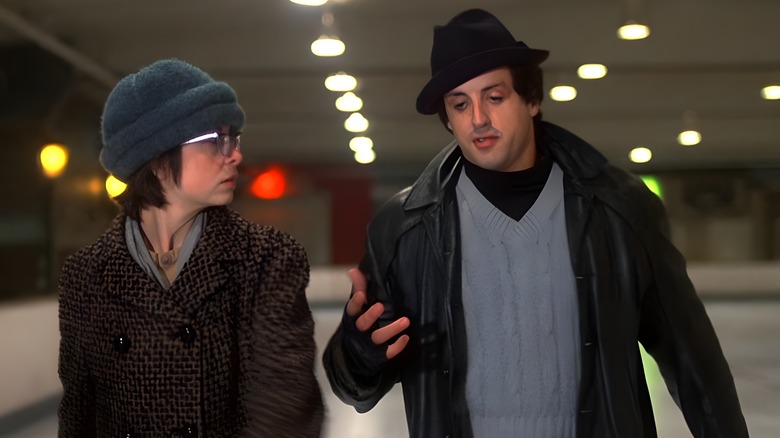How Sylvester Stallone's Rocky Balboa Got His Name
Part of what makes Sylvester Stallone's Rocky Balboa such a lovable icon is the grounded, relatable feel of the character. Indeed, the titular big-hearted boxer from the 1976 Best Picture winner "Rocky" and its several followups were not only heavily based on various real-world sports figures such as Rocky Marciano and Chuck Wepner but also took inspiration from many aspects of Stallone's own life, including a key moment that helped birth the character's name.
In the Netflix documentary "Sly," Stallone shared his memories of first coming to Los Angeles. After his car broke down, he contacted the only person he knew nearby, "Happy Days" star Henry Winkler. Afterward, Stallone resided in a less-than-stellar apartment building on none other than Balboa Boulevard. More than the name of the street itself, "Sly" director Thorn Zimmy surmised that the "First Blood" star's attraction to the moniker stemmed from the influence that the location had on him and his now iconic alter ego. "This story perfectly encapsulated the same themes I observed in Stallone's early days, which remain relevant today: self-belief, the power of dreams and ambitions, the inherent beauty of making mistakes, and the serendipitous moments of being in the right place at the right time," Zimmy shared in an interview with Rolling Stone. "Sly had a knack for seeing the world as a source of creative inspiration despite the circumstances."
Every little piece that went into crafting Rocky was crucial to making the character we love today. But perhaps without one pivotal piece of advice, audiences wouldn't see the Italian Stallion in quite the same light.
One suggestion helped make Rocky a likable character
Rocky Balboa may be known for fighting hard in the ring, but it's his golden heart and caring attitude that helped cement the character as a cinema icon. However, the era that the original "Rocky" came out in nearly influenced how the hero would be depicted, and it's thanks to a close friend of Stallone's that his personality would greatly alter.
Stallone reveals in "Sly" that Rocky was originally set to have a more aggressive persona. In particular, he took inspiration from the characters of Martin Scorsese's films, such as "Mean Streets," a defining entry of the New Hollywood era that emphasized seedier protagonists with questionable morals. Not long after, a friend got ahold of Stallone's screenplay and felt that he was taking the wrong approach. "She goes, 'I hate Rocky. I hate him. He's cruel. He hits people. He beats them up,'" he shared in the documentary. Stallone was in line with the sentiment after reexamining the character, which would go on to birth some of Rocky's most defining aspects. He continued, "I said, 'what if you stop short of it?' Like, maybe he almost did. He could have, that's his job, but he doesn't?' 'That'd be nice.' I said, 'What if he had a girlfriend or something?' 'Yeah, that's nice.' So I go back, start writing that: 'Girlfriend. Nice.'"
It's nearly impossible to imagine Rocky now without his charming personality or his wife Adrian by his side. But whether it came from the name of a street or the urging of a confidante, we're all thankful for every little piece that helped make Rocky into what we know today.

